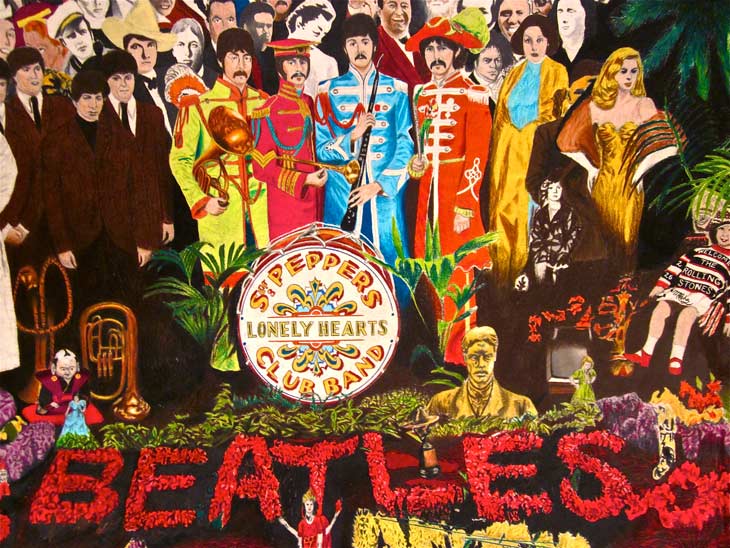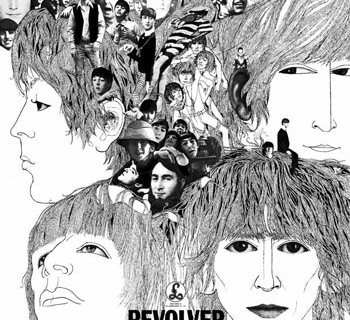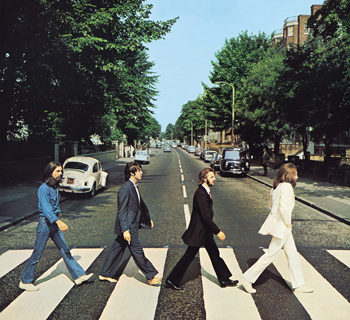Sgt. Pepper's Lonely Hearts Club Band
I am a lonely person.
I mention this because that solitude, in its infancy, made bands like The Beatles infinitely attractive, and played no small part in my obsessive adoration of their work. I consider myself among the biggest fans of the Beatles you are likely to meet, which makes talking about Sgt. Pepper's Lonely Hearts Club Band difficult, to say the least.
Like Revolver, Sgt. Pepper is defined by its musical nuance and pop sensibility, but taken, refined, and given greater heterogeneity. The songwriting is a good middle ground of the Beatles more artistically free period, presenting more musical balance than The White Album, but pushing further beyond Revolver’s experimentation. It is also, not coincidentally, the first album that emphasized the desire for the death of the band as a unit.
In my loneliness, I wanted to be the Beatles so badly—to be seen, heard, and adored by all. However now, when I listen to this album, I see how tired the Beatles were of that success. They wanted out. The now over-parodied album cover explicitly portrays this with its funereal imagery. The Beatles didn’t want to be the Beatles, they wanted to be John, Paul, George, and Ringo.
They tried to kill the Beatles with this record but didn’t quite succeed. In fact, it pushed them to the stratosphere of greatness. It’s understandable too; the music on here is catchy, experimental, and absurdly complex. Some of the tracks, like “A Day in the Life,” are mind boggling when you listen closely, and try to parse them out; and, it’s so lovingly produced that you get lost in the four part harmonies, guitars, sitars, harpsichords and other instruments. Better still, they no longer care about trite love songs and explore freely.
They tried to kill the Beatles with this record but didn’t quite succeed. In fact, it pushed them to the stratosphere of greatness.
There is always a cost, however. For The Beatles, they were under public scrutiny continuously for five years by this album’s release. Every move they made was up for interpretation; they were held to an absurd touring and recording schedule; they had to be present and with each other all the time; anything one member did reflected on the whole. For a bunch guys in their mid- to late-20s, who just want to play Rock Music, the continuous onslaught takes—and took—its toll.
These days, while I am very much the lonely youth who fell in love with this band, my sense of self is far stronger. The weight and meaning of their success feels more real and tangible than it did when I was young, hoping to be seen. In light of this, I can’t quantify my love purely by the music on Sgt. Pepper or the Beatles as a cultural force. I see the toll it took and tragedy that followed.
But I suppose that’s the cost of greatness.
Until Somebody Speaks, and I fall into a dream.













